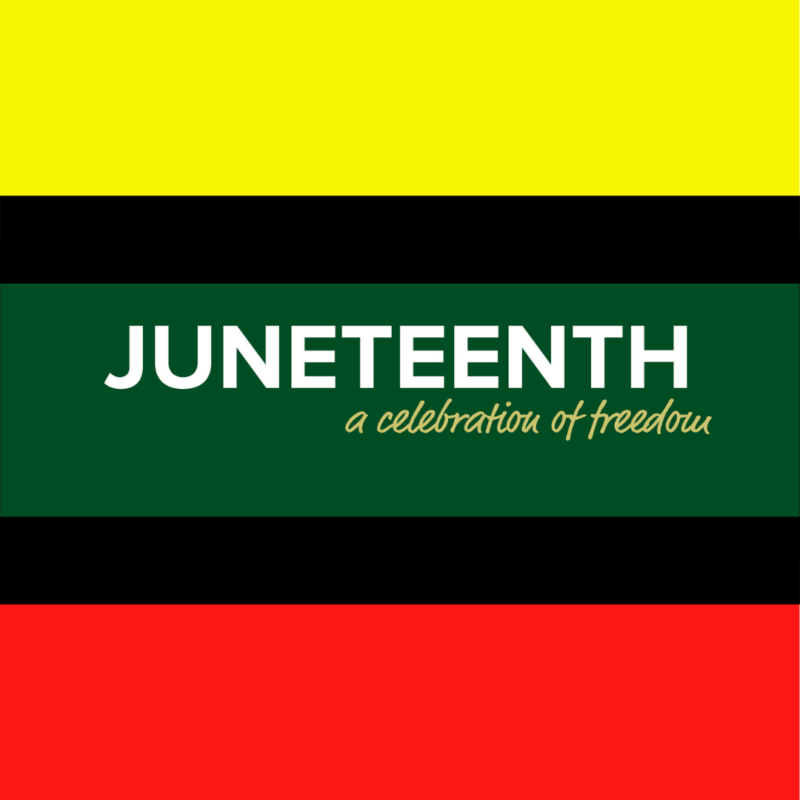Juneteenth is now a US federal holiday.
Juneteenth is the oldest nationally celebrated commemoration of the ending of slavery in the United States. From its Galveston, Texas origin in 1865, the observance of June 19th as the African American Emancipation Day has spread across the United States and beyond.
Today Juneteenth commemorates African American freedom and emphasizes education and achievement. It is a day, a week, and in some areas a month marked with celebrations, guest speakers, picnics and family gatherings. It is a time for reflection and rejoicing. It is a time for assessment, self-improvement and for planning the future. Its growing popularity signifies a level of maturity and dignity in America long over due. In cities across the country, people of all races, nationalities and religions are joining hands to truthfully acknowledge a period in our history that shaped and continues to influence our society today. Sensitized to the conditions and experiences of others, only then can we make significant and lasting improvements in our society.
Juneteenth was born out of the end of the U.S. Civil War, which historians now believe claimed 750,000 lives over the course of four years. The war itself was fundamentally a contest over the future of democratic governance and the institution of slavery. In 1860, slavery was an enormously powerful and profitable institution, though localized primarily in the southern states. White Southerners had long held outsized political power, allowing them to promote a federal pro-slavery agenda, including passing the single greatest expansion of federal power before the Civil War: The Fugitive Slave Act of 1850. When Abraham Lincoln won the 1860 presidential election, a portion of the southern states feared the new president would interfere with slavery; so, they rejected the democratic result and seceded from the Union, forming the Confederate States of America.
The war began in 1861 as a struggle to bring those states back into the Union — to maintain democracy. But enslaved people also saw the war as an opportunity to escape their bondage. Black men and women ran to Union military lines, forcing the Lincoln administration and members of Congress to address the future of slavery head on. On Jan. 1, 1863, Lincoln issued the Emancipation Proclamation, which freed enslaved people in Confederate-controlled territory. When the war ended, nationwide freedom was enshrined in the Constitution in the 13th Amendment, passed by Congress in January 1865 and ratified by the states that December. So, in one of the great ironies of U.S. history, Confederates began the war to protect slavery and, in the process, created its demise.




